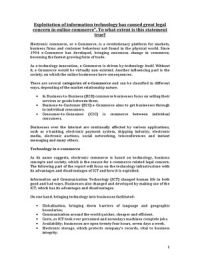Case
Exploitation of information technology has caused great legal concern in online commerce”. To what extent is this statement true?
- Module
- Law
- Institution
- Birmingham City University (BCU)
Exploitation of information technology has caused great legal concern in online commerce”. To what extent is this statement true?
[Show more]



